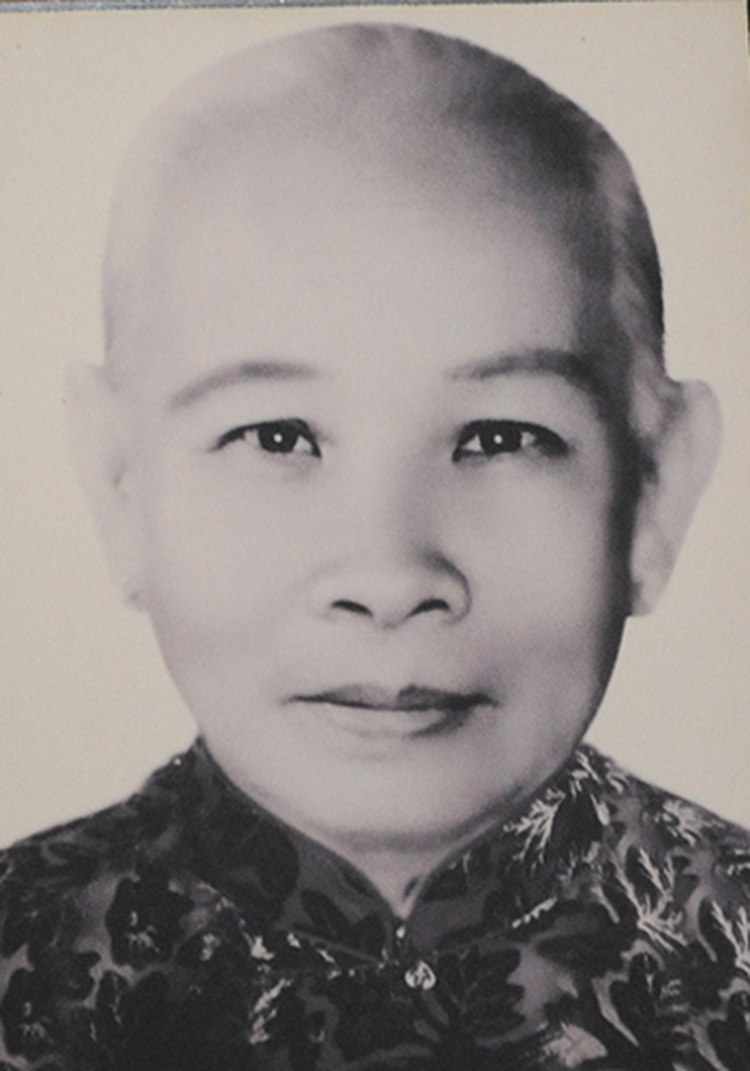
“I was arrested when I was working as a secret agent in Saigon [former name of Ho Chi Minh City], pregnant for four months. They called my grandmother to psychologically influence me after they failed to get what they wanted from torturing me.
>> Sole plaintiff against 35 US firms: ‘I sue for millions of my people’
>> Vietnamese French woman files dioxin lawsuit against 35 US companies
“My grandmom remained composed,” recalled 72-year-old Tran To Nga, who has lodged a lawsuit in France to sue 35 of the U.S.’s chemical companies for producing the Agent Orange/Dioxin sprayed over Vietnam during the war.
Nga’s family – her mother Nguyen Thi Tu, her sisters, and her grandmother, Le Thi Meo – have all made great contributions to the liberation of Vietnam despite suffering great losses for their beliefs.
While visiting her granddaughter in prison, Meo was calm and spoke to police of the previous Saigon administration with composure. She said of her granddaughter, “Thank you for letting me visit Nga. She is mature and is supported by her husband, parents and sisters. She will reunite with them one day.”
A history of courage
Meo and her husband Nguyen Van Thau had one daughter, Nguyen Thi Tu, the mother of Tran To Nga.
Upon hearing that Tu was working for a revolutionary movement for the liberation of Vietnam, Meo did not prevent her but rather supported her, going so far as to sell her assets to help her daughter.
Meo established the cake shop Tran Thuong, once a famous brand in Saigon, as a rendezvous point for Tu and her comrades.
The family suffered great losses to work for Vietnam’s liberation.
When traveling in a car, Meo and her family were ambushed by people believed to be French army officials. Meo’s three-year-old grandchild was killed in the incident and her husband lost a leg. Three bullets remained in his stomach until his death.
Furthermore, Tu lost her husband Tran Thuong Tan when she was just 24 years old in another incident.
Upon recovering, Meo and her husband continued managing the cake shop, sheltering secret agents, and supporting their daughter and granddaughters to work for the country’s liberation.
Meo set foot in almost all prisons in southern Vietnam including Chi Hoa, Tan Hiep, Thu Duc, Phu Quoc, Phu Loi and Con Dao to visit her daughter Tu and granddaughters To Nga, Que Nga, and Tuyet Nga.
While visiting them in prison, Meo often encouraged her relatives with a well-known proverb that translates: ‘a dead tiger saves its skin, a dead person saves his reputation.’
Nga confirmed that “My grandmom brought to prison not only food and love but also strength.”
A story of the first Liberation Day – April 30, 1975 – has been repeated many times to prove Meo’s grace in social situations. On the ‘victory day,’ many VC (Vietnamese communists) soldiers and officials flocked to Meo’s cake shop to celebrate and many officials of the pro-American South Vietnam administration rushed to her shop for help, food and shelter.
The following day, a man who introduced himself as the lieutenant colonel of the Saigon regime came and apologized, with his eyes wet with tears, for arresting and torturing Tu, Meo’s only daughter.
She kept calm and talked with him, although Tu had not yet returned home. Unbeknownst to Meo, she had died in a battle, but this was only confirmed many years later.
Meo even ordered her relatives to behave well in front of the man because “He is coming to apologize to our family and so you shouldn’t treat him poorly.”
“This was my grandmother’s style. The only thing she regretted on her deathbed was that she never found where Tu was buried,” To Nga said.
Nga’s mother
Tu followed revolutionary movements for national liberation since she was young and died for the cause.
The woman always expressed her deep love and faith in her letters written from prison to her daughters and family, Nga recalled.
“I miss you a lot and I know you miss me as much as I miss you. But for our happiness and for the future, I must stay away from you. I expect you to always try to study and complete your duties to serve the nation. I believe you won’t forget your responsibilities,” she wrote in one such letter.
Years after the end of the U.S. war in Vietnam, the remains of Tu were found under a bush of bamboo trees in Ben Cat District of southern Binh Duong Province.
As brave as their mother, Tu’s daughters To Nga and Que Nga experienced part of their youth in the same prison their mother had stayed in.
“It is like a destiny,” To Nga said. “We don’t agree to retreat. We just advance.”
Like us on Facebook or follow us on Twitter to get the latest news about Vietnam!


Max: 1500 characters
There are no comments yet. Be the first to comment.